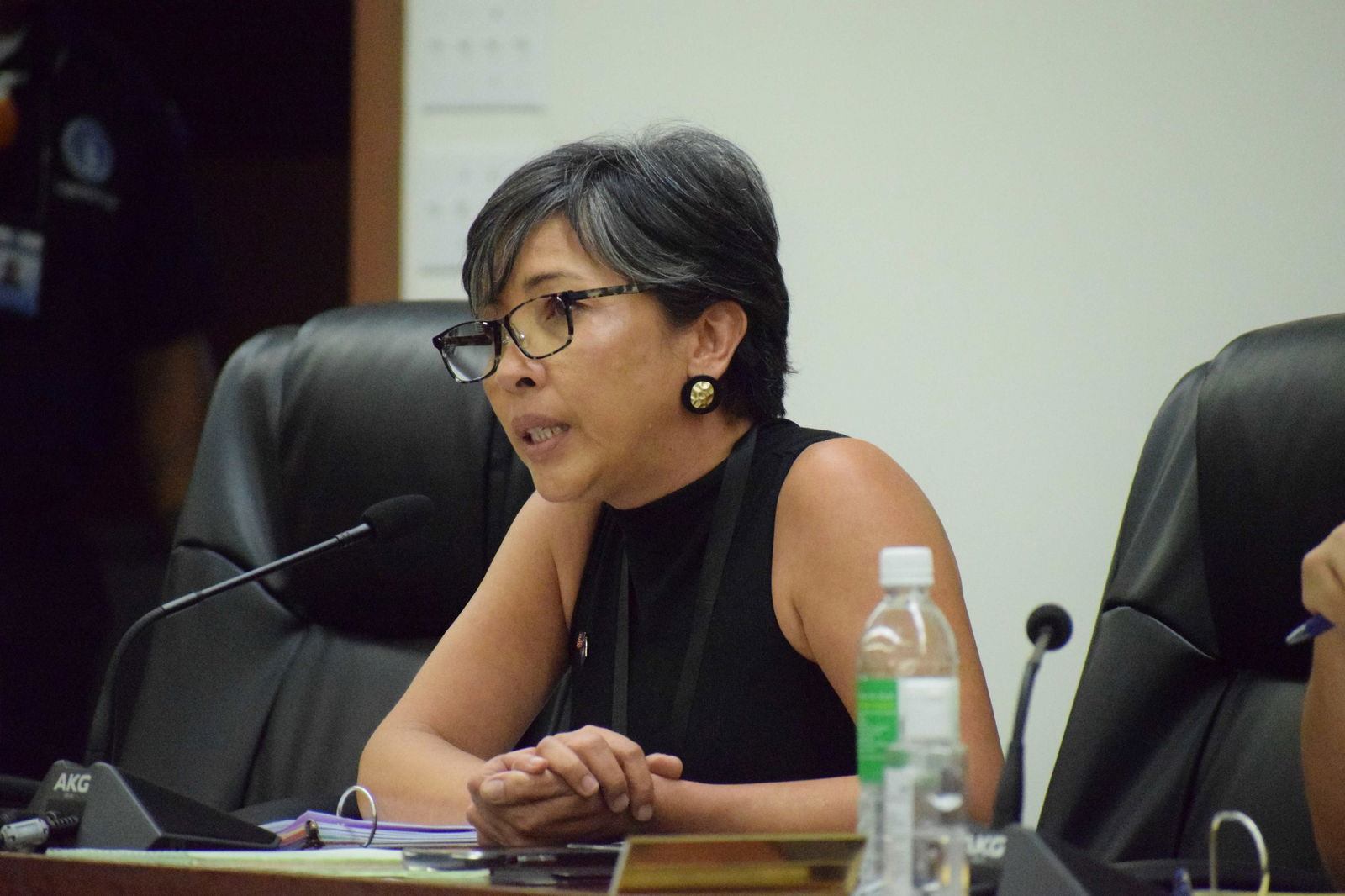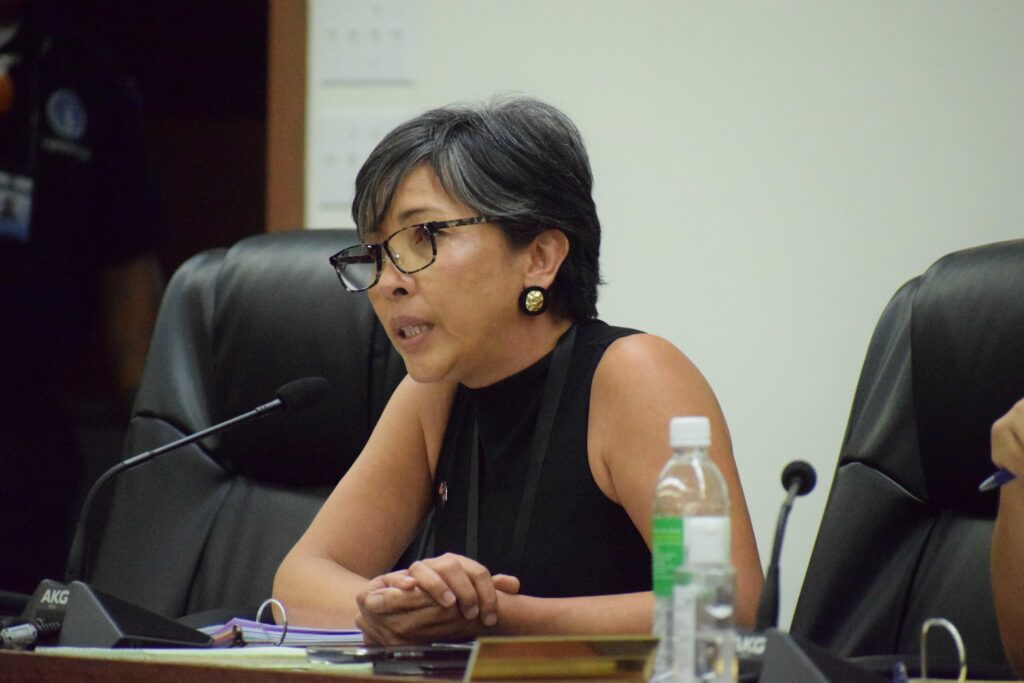
Marissa Flores
THE House Committee on Judicial and Governmental Operations on Thursday amended H.B. 23-119, which would amend the law regarding the recusal of judges and justices, and provide penalties for non-compliance.
According to the bill, “The Legislature finds that the CNMI Judiciary must uphold the highest standards of impartiality and integrity. Judges and justices are obligated to avoid any appearance of bias, ensuring their impartiality cannot be reasonably questioned. However, unnecessary recusals undermine these duties and erode public trust in the judicial system. Unwarranted recusals impose financial burdens on the CNMI government due to the need for judges pro tempore, diverting resources from essential services.”
The bill was authored by Rep. Marissa Flores and co-sponsored by Reps. Vincent Aldan, Blas Jonathan “BJ” Attao, Roman C. Benavente, Angelo A. Camacho, Diego F. Camacho, Julie A. Ogo and Malcolm J. Omar.
The legislation “introduces oversight by the Presiding Judge and Chief Justice to assess the justification for recusals….”
In addition, the bill defines “specific circumstances requiring recusal, such as personal biases, prior involvement in related matters, and financial interests, ensuring conflicts of interest are addressed while preventing the transfer of responsibilities to external judges.”
Moreover, the bill would provide the courts “with the authority to create their own policies with respect to certain aspects of this legislation.”
It would also empower courts “to impose penalties or suspend judges for non-compliance, serving as a deterrent against unjustified recusals.”
H.B. 23-199 would require a recusing judge or judge to file a detailed affidavit in support of the order of recusal.
In addition, the bill would authorize the CNMI Legislature “to initiate impeachment proceedings for neglect of duty, enhancing checks and balances.”
According to the bill, “because the public would be better served if the judiciary identified local qualified retired judges or attorneys to serve as pro tempore jurists, the courts shall appoint local attorneys on a pro tempore basis and exhaust the local pool of qualified attorneys before resorting to appointing a judge or justice from off-island.”
In summary, the bill stated, “this legislation strengthens judicial integrity, accountability, and transparency by establishing clear recusal standards. It promotes economic efficiency and upholds the rule of law within the CNMI, fostering public confidence in the judicial system.”
As of press time Thursday evening, there was no information on whether the JGO committee would hold public hearings on the bill or solicit comments from the CNMI judiciary and the local legal community.











